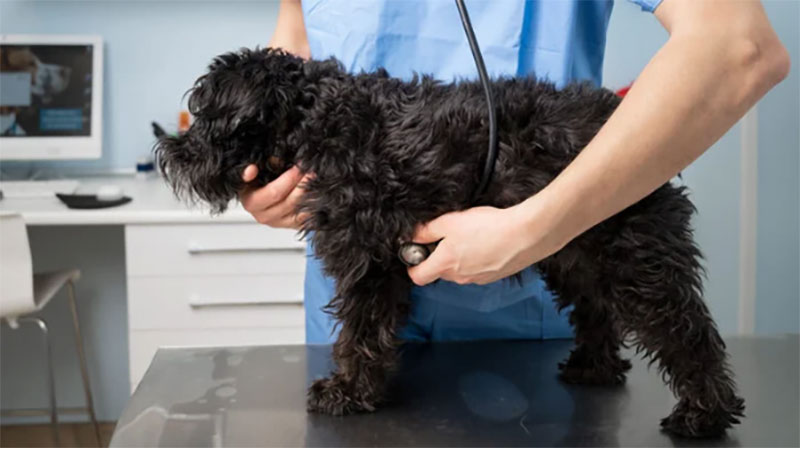Impact of Pets on Renter's Insurance
Dec 31, 2023 By Triston Martin
If you own a pet, it can bring you joy and companionship, but it can also impact your renter's insurance if you're ever faced with an unexpected event like fire or theft. Renter's insurance covers many expenses due to incidents that cause property damage in rental units, whether apartments, condos, or other dwellings.
Knowing how having a pet affects your coverage can help you protect yourself and your family—not to mention the health and well-being of your furry friend! In this blog post, we'll explore what kind of impact pets have on renter's insurance policies so that you're prepared for whatever comes your way.
What is the difference between pet insurance and renters insurance?
Pet insurance is designed to cover veterinary expenses related to an animal's health. Pet insurance policies typically protect medical costs associated with accidents, illnesses, and preventive care.
Renters insurance is a form of property and casualty insurance that protects the possessions and liability of renters or tenants who rent apartments, condos, or houses from a landlord. Renters' insurance will cover damaged or stolen property costs and can provide liability protection if someone is injured on your premises.
It also provides some coverage for living expenses if you are temporarily displaced due to a covered loss.
How can renters insurance protect you and your pet?

Renters insurance is an important way to protect your belongings in the event of theft, damage, or other loss. But did you know that renters insurance can protect you and your pet?
Your renter's insurance policy will cover any medical bills incurred if Fido bites someone while living at your rental home. Without coverage, you would be responsible for paying out of pocket to cover any legal fees or medical bills.
In addition, many renters' insurance policies will cover pet damage to your property that occurs while your pet is in your care. This may include covering the cost of repairing any scratch marks on hardwood floors or replacing furniture damaged by a mischievous pup.
The impact of pets on a renter's insurance can vary depending on the type and size of your pet. Large or exotic pets may require special coverage, so check with your insurance provider before signing a policy.
Additionally, some providers may not cover certain breeds of dangerous dogs, such as Pit Bulls or Rottweilers.
What pets are excluded from renters insurance?
Most renters insurance policies generally exclude certain breeds of dogs, such as pit bulls or Rottweilers. Some policies may also limit the number of certain types of pets that can be covered.
It is important to read your policy closely to determine what pets are excluded and what restrictions apply. Here's a look at breeds renters insurance may not cover:
- Pit bulls and American Staffordshire Terriers
- Rottweilers
- Doberman Pinschers
- German Shepherds
- Chows
- Presa Canarios
- Alaskan Malamutes
- Wolf hybrids or any mix of the above breeds.
How does having a pet affect your renter's insurance?

Having a pet can impact the cost and coverage of your renter's insurance policy. Some policies may exclude coverage for certain types of pets, such as breeds that are deemed dangerous according to the insurance company's guidelines.
Additionally, having a pet may increase your liability risk, affecting your policy's cost and coverage limits.
It is important to speak with your renter's insurance provider about the impact of having a pet on your policy. They can explain how pet ownership may affect your coverage and costs.
Additionally, they can suggest any important safety measures that should be taken if you own a pet. These steps help protect your policy if your pet causes property damage or bodily injury.
Ultimately, having a pet should not prevent you from obtaining renters insurance—but it may affect the coverage you are eligible for. Speak with your provider about the pet-related risks of owning rental property to ensure your policy is tailored to meet your needs.
How do pets affect the cost of renters insurance?
A pet's impact on renters insurance will depend on the type of animal and its breed. Some breeds, such as pit bulls or Rottweilers, are considered more aggressive and may be excluded from coverage or require additional costs.
Additionally, some rental properties may not allow certain pets, so it is important to determine what is allowed before signing a lease.
Pet owners generally expect to pay more for renters insurance if their animal is considered 'high-risk' or has a history of causing damage or injury.
If your renter's policy covers pets, it will typically cover medical costs if your pet causes bodily injury to someone else. It may also cover property damage caused by your pet, such as chewing on furniture or digging up a landlord's lawn.
When shopping for renters insurance, be sure to ask about any additional fees associated with owning a pet and find out what types of coverage are available for your animal. Knowing this information can help you determine the best policy for your needs.
FAQs
Does renters insurance cover pet urine?
It depends on the policy and your specific situation. Most standard policies do not cover pet-related damages, such as pet urine or scratches. However, some insurers may offer riders that can be added to the policy for additional coverage. Check with your insurance provider to see what is covered under your policy.
What does renters insurance cover?
RRenters'insurance typically covers damage to an apartment or rental home caused by a named peril, such as fire, theft, or vandalism. It also may provide coverage for personal belongings and liability protection in case of injury or property damage caused by you or your pet.
Does renters insurance cover pet injuries?
No, most renters' insurance policies do not cover pet-related injuries. However, some policies may offer additional coverage for pet-related incidents. Check with your insurance provider to see what is covered under your policy.
Conclusion
In Conclusion, having a pet in your rental property can impact your renter's insurance policy. Depending on the type of pet you own, some insurers may require additional coverage or even deny coverage altogether.
Check with your insurer and provide the necessary paperwork before bringing a pet into your rental home. Additionally, it is important to take preventative measures such as properly training your pet, keeping it up to date on vaccinations, and maintaining the premises.
These steps can help you and your pet remain safe and secure while living in your rental home.








